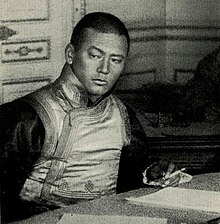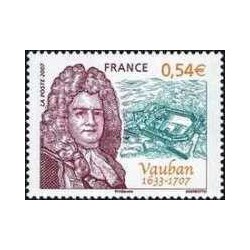- جدید
- ناموجود



توجه : درج کد پستی و شماره تلفن همراه و ثابت جهت ارسال مرسوله الزامیست .
توجه:حداقل ارزش بسته سفارش شده بدون هزینه پستی می بایست 180000 ریال باشد .
توجه : جهت برخورداری از مزایای در نظر گرفته شده برای مشتریان لطفا ثبت نام نمائید.
| Damdin Sükhbaatar Дамдины Сүхбаатар | |
|---|---|

Sükhbaatar in around 1920-1922
|
|
| Born | February 2, 1893 Khuree, Qing Empire (now Ulaanbataar, Mongolia) |
| Died | 20 February 1923 (aged 30) Mongolia |
| Occupation | Military leader, independence movement |
| Spouse(s) | Yanjmaa Sukhbaatar |
Damdinii Sükhbaatar (Mongolian: Дамдины Сүхбаатар; February 2, 1893 – February 20, 1923) was a founding member of the Mongolian People's Party and leader of the Mongolian partisan army that liberated Khüree during the Outer Mongolian Revolution of 1921. Enshrined as the "Father of Mongolia's Revolution", he is remembered as one of the most important figures in Mongolia's struggle for independence.[1]


Sükhbaatar (literally meaning "Axe Hero" in the Mongolian language) was born in present-day Ulaanbaatar, the Chinese trading settlement some kilometers east of Ikh Khüree (later Niislel Khüree, now Ulaanbaatar), as the third of four children. His parents had deserted their home banner in Setsen Khan aimag, and his father lived from odd jobs and as a day laborer. When Sükhbaatar was six, the family moved close to the Russian consulate. It was from playing with the Russian children that he learnt to speak some Russian. At the age of 14, Sükhbaatar had the opportunity to get an education, from Zaisan Jamyan. From the age of 16 onwards, he worked as a proxy rider (at that time, people who were obliged to render certain services to the authorities often employed other people to replace them) for several years. After Mongolia's first declaration of independence in 1911, Sükhbaatar was drafted into the new nation's army.


In 1912, Russian advisers set up a military school at Khujirbulan, and Sükhbaatar was one of the soldiers transferred there. His talent for military tactics and his skills at riding and shooting earned him the respect of his comrades, and after the training he became a platoon leader of the machine gun company at Khujirbulan. In 1913, he set up his own household with his wife Yanjmaa. They had had their first son in 1911, but Yanjmaa's parents objected to the relationship on the grounds that Sükhbaatar was too poor.
In late June 1914, Sükhbaatar was involved in a soldiers' riot against the bad living conditions and corruption in the army, but this episode seems to have had no negative repercussions for him. The so-called autonomous period was a rather unruly one, and in 1917 Sükhbaatar was deployed to Mongolia's eastern border, under the command of Khatanbaatar Magsarjav. In 1918, the Mongolian government set up a printing office for printing law codes and Buddhist texts, and Sükhbaatar was transferred there. The office was led by Jamyan, so one reason for this transfer may have been that Sükhbaatar's name had been forwarded by his old teacher. Another reason may have been that Sükhbaatar's superiors wanted to keep him apart from the other soldiers.
تشکر نظر شما نمی تواند ارسال شود
گزارش کردن نظر
گزارش ارسال شد
گزارش شما نمی تواند ارسال شود
بررسی خود را بنویسید
نظر ارسال شد
نظر شما نمی تواند ارسال شود

check_circle
check_circle















